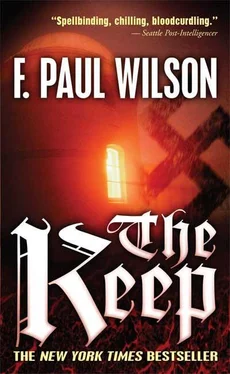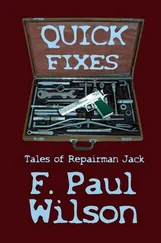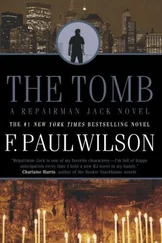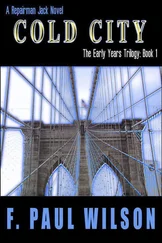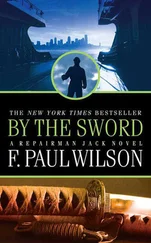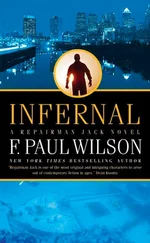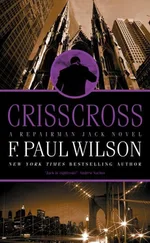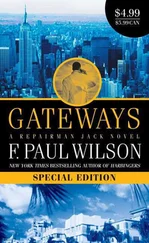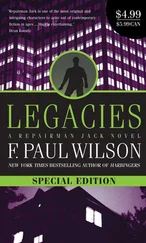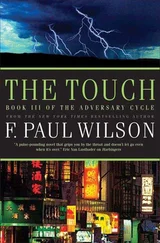F. Paul Wilson - The Keep
Здесь есть возможность читать онлайн «F. Paul Wilson - The Keep» весь текст электронной книги совершенно бесплатно (целиком полную версию без сокращений). В некоторых случаях можно слушать аудио, скачать через торрент в формате fb2 и присутствует краткое содержание. Жанр: Ужасы и Мистика, на английском языке. Описание произведения, (предисловие) а так же отзывы посетителей доступны на портале библиотеки ЛибКат.
- Название:The Keep
- Автор:
- Жанр:
- Год:неизвестен
- ISBN:нет данных
- Рейтинг книги:3 / 5. Голосов: 1
-
Избранное:Добавить в избранное
- Отзывы:
-
Ваша оценка:
- 60
- 1
- 2
- 3
- 4
- 5
The Keep: краткое содержание, описание и аннотация
Предлагаем к чтению аннотацию, описание, краткое содержание или предисловие (зависит от того, что написал сам автор книги «The Keep»). Если вы не нашли необходимую информацию о книге — напишите в комментариях, мы постараемся отыскать её.
The Keep — читать онлайн бесплатно полную книгу (весь текст) целиком
Ниже представлен текст книги, разбитый по страницам. Система сохранения места последней прочитанной страницы, позволяет с удобством читать онлайн бесплатно книгу «The Keep», без необходимости каждый раз заново искать на чём Вы остановились. Поставьте закладку, и сможете в любой момент перейти на страницу, на которой закончили чтение.
Интервал:
Закладка:
He turned his face back toward the window and was silent.
Magda wished for something to say to make it easier for him, but no words came. She knew there would have been tears on his cheeks now if his disease had not rendered his eyes incapable of forming them. When he spoke again, he had himself once more under control, but he kept his gaze directed at the flat green farmland rolling by.
"And now we are on this train, under guard of Romanian fascists, on our way to be delivered into the hands of German fascists. We are finished!"
She watched the back of her father's head. How bitter and cynical he had become. But then, why not? He had a disease that was slowly tying his body into knots, distorting his fingers, turning his skin to wax paper, drying his eyes and mouth, making it increasingly hard for him to swallow. As for his career—despite years at the university as an unchallenged authority on Romanian folklore, despite the fact that he was next in line as head of the Department of History, he had been unceremoniously fired. Oh, they said it was because his advancing debility made it necessary, but Papa knew it was because he was a Jew. He had been discarded like so much trash.
And so: His health was failing, he had been removed from the pursuit of Romanian history—the thing he loved most—and now he had been dragged from his home. And above and beyond all that was the knowledge that engines designed for the destruction of his race had been constructed and were already operating with grim efficiency in other countries. Soon it would be Romania's turn.
Of course he's bitter! she thought. He has every right to be!
And so do I. It's my race, my heritage, too, they wish to destroy. And soon, no doubt, my life.
No, not her life. That couldn't happen. She could not accept that. But they had certainly destroyed any hope she had held of being something more than secretary and nursemaid to her father. Her music publisher's sudden about-face was proof enough of that.
Magda felt a heaviness in her chest. She had learned the hard way since her mother's death eleven years ago that it was not easy being a woman in this world. It was hard if you were married, and harder still if you were not, for there was no one to cling to, no one to take your side. It was almost impossible for any woman with an ambition outside the home to be taken seriously. If you were married, you should go back home; if you were not, then there was something doubly wrong with you. And if you were Jewish...
She glanced quickly to the area where the two Iron Guards sat. Why am I not permitted the desire to leave my mark on this world? Not a big mark ... a scratch would do. My book of songs ... it would never be famous or popular, but perhaps someday a hundred years from now someone would come across a copy and play one of the songs. And when the song is over, the player will close the cover and see my name ... and I'll still be alive in a way. The player will know that Magda Cuza passed this way.
She sighed. She wouldn't give up. Not yet. Things were bad and would probably get worse. But it wasn't over. It was never over as long as one could hope.
Hope, she knew, was not enough. There had to be something more; just what that might be she didn't know. But hope was the start.
The train passed an encampment of brightly colored wagons circled around a smoldering central fire. Papa's pursuit of Romanian folklore had led him to befriend the Gypsies, allowing him to tap their mother lode of oral tradition.
"Look!" she said, hoping the sight would lift his spirits. He loved those people so. "Gypsies."
"I see," he said without enthusiasm. "Bid them farewell, for they are as doomed as we are."
"Stop it, Papa!"
"It's true. The Rom are an authoritarian's nightmare, and because of that, they, too, will be eliminated. They are free spirits, drawn to crowds and laughter and idleness. The fascist mentality cannot tolerate their sort; their place of birth was the square of dirt that happened to lie under their parents' wagon on the day of their birth; they have no permanent address, no permanent place of employment. And they don't even use one name with any reliable frequency, for they have three: a public name for the gadjé, another for use among their tribe members, and a secret one whispered in their ear at birth by their mother to confuse the Devil, should he come for them. To the fascist mind they are an abomination."
"Perhaps," Magda said. "But what of us? Why are we an abomination?"
He turned away from the window at last. "I don't know. I don't think anyone really knows. We are good citizens wherever we go. We are industrious, we promote trade, we pay our taxes. Perhaps it is our lot. I just don't know." He shook his head. "I've tried to make sense out of it, but I cannot. Just as I cannot make sense out of this forced trip to the Dinu Pass. The only thing of interest there is the keep, but that is of interest only to the likes of you and me. Not to Germans."
He leaned back and closed his eyes. Before long, he was dozing, snoring gently. He slept all the way past the smoking towers and tanks of Ploiesti, awakened briefly as they passed to the east of Floresti, then dozed again. Magda spent the time worrying about what lay ahead for them, and what the Germans could possibly want with her father in the Dinu Pass.
As the plains drifted by outside the window, Magda drifted into a familiar reverie, one in which she was married to a handsome man, loving and intelligent. They would have great wealth, but it would not go for things like jewelry and fine clothes—they were toys to Magda and she could see no use or meaning in owning them—but for books and curios. They would dwell in a house that would resemble a museum, stuffed with artifacts of value only to them. And that house would lie in a far-off land where no one would know or care that they were Jewish. Her husband would be a brilliant scholar and she would be widely known and respected for her musical arrangements. There would be a place for Papa, too, and money enough to get him the best doctors and nurses, giving her time to herself to work on her music.
A small, bitter smile curved Magda's lips. An elaborate fantasy—and that was all it ever would be. It was too late for her. She was thirty-one, well past the age when any eligible man would consider her suitable for a wife and prospective mother of his children. All she was good for now was somebody's mistress. And that, of course, she could never accept.
Once, a dozen years ago, there had been someone ... Mihail... a student of Papa's. They had both been attracted to each other. Something might have come of that. But then Mother had died and Magda had stayed close to Papa—so close that Mihail had been left out. She had had no choice; Papa had been utterly shattered by Mother's death and it was Magda who had held him together.
Magda fingered the slim gold band on her right ring finger. It had been her mother's. How different things would have been if she hadn't died.
Once in a while Magda thought of Mihail. He had married someone else ... they had three children now. Magda had only Papa.
Everything changed with Mother's death. Magda couldn't explain how it happened, but Papa grew to be the center of her life. Although she had been surrounded by men in those days, she took no notice of them. Their attentions and advances had lain like beads of water on a glass figurine, unappreciated, unabsorbed, leaving not so much as a hazy ring when they evaporated.
She spent the intervening years suspended between a desire to be somehow extraordinary, and a longing for all the very ordinary things that most other women took for granted. And now it was too late. There was really nothing ahead for her—she saw that more clearly every day.
Читать дальшеИнтервал:
Закладка:
Похожие книги на «The Keep»
Представляем Вашему вниманию похожие книги на «The Keep» списком для выбора. Мы отобрали схожую по названию и смыслу литературу в надежде предоставить читателям больше вариантов отыскать новые, интересные, ещё непрочитанные произведения.
Обсуждение, отзывы о книге «The Keep» и просто собственные мнения читателей. Оставьте ваши комментарии, напишите, что Вы думаете о произведении, его смысле или главных героях. Укажите что конкретно понравилось, а что нет, и почему Вы так считаете.
